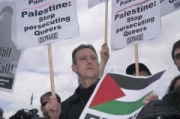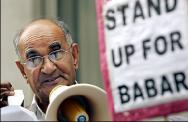The British National Party has posted the resolutions adopted at its conference in Blackpool last weekend. This is the one on the “burka” – presumably it is directed at the niqab too – which was “passed by a large majority”:
“The British National Party is the party of freedom and democracy. We are also, however, the party of the British people, of British culture, of British heritage, of British traditions and of the British way of life. The wearing of the burka is not a religious requirement and is not stipulated in the Koran; it is, instead, a symbol of the wearer’s repudiation of traditional Britain. Furthermore, the burka has been used as a disguise which has enabled suspects wanted by the police in connection with serious terrorist offences to evade capture. The wearing of the burka is therefore both a political act of hostility to Britain and a serious security risk. Banning the burka will not inconvenience the indigenous British people and will increase their security and freedom from terrorism. We therefore believe this is an entirely sensible and proportionate policy.”

 Peter Tatchell has been caught up in a war of words with British Muslims, who have accused him of “Islamophobia”.
Peter Tatchell has been caught up in a war of words with British Muslims, who have accused him of “Islamophobia”. Two terrorist suspects today lost their high court battle to avoid extradition to the United States.
Two terrorist suspects today lost their high court battle to avoid extradition to the United States.